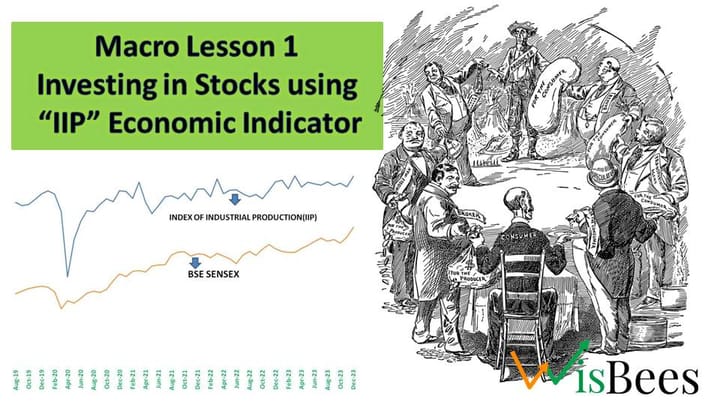Markets React to Fed's Pause and Silicon Valley Bank's Failure: Treasuries Surge, Stocks Rise, and Gold Shines

It was a turbulent day in the markets on 13th March as news of the collapse of Silicon Valley Bank sent shockwaves through the financial world. Let's understand the impact.
According to the Bloomberg analyst’s report on 03/13/2023, the yield on the two-year Treasury note experienced a significant decline, which could be the largest one-day drop in several decades. Meanwhile, stocks bounced back from a previous decline as news of the Silicon Valley Bank's failure affected trading activities.
Traders believed that the collapse of Silicon Valley Bank and two other lenders would force the Federal Reserve to stop increasing interest rates, resulting in the two-year Treasury note's decline of up to 60 basis points to less than 4%. Additionally, the 10-year yield fell to a six-week low by more than 28 basis points, and the dollar lost its gains for the year.
Despite the initial drop, the S&P 500 made a comeback, especially since bank shares took a hit. The NASDAQ, which is sensitive to policy changes, experienced the most significant increase in more than a week. Following Silicon Valley Bank's failure, President Joe Biden promised to improve regulation of US lenders and assured depositors of the safety of their money.
The recent turbulence in the markets has resulted in a rapid adjustment in the expected direction of the Federal Reserve's policies. Swaps traders are now pricing a less than 50% chance of the Fed raising rates by another quarter point in this cycle. Goldman Sachs economists and fund managers from Pacific Investment Management believe that the Federal Reserve might take a break on policy rates after the Silicon Valley Bank's collapse. Initially, the markets had anticipated a hike of up to 50 basis points after Chair Jerome Powell's remarks to lawmakers on Tuesday.
As concerns about the state of US regional banks continue to increase, First Republic Bank plummeted by 67% and was eventually stopped. The KBW Bank Index is poised for its most significant one-day decline since the Covid-19 pandemic's onset.
Mayra Rodriguez Valladares, the managing principal at MRV Associates, explained on Bloomberg TV that no one wants to be the last person to leave the room and turn off the light. This means that when a problem arises in one bank, people become fearful, and everyone starts to question whether they should also withdraw their deposits from other banks. As a result, bond yields rise, indicating to the market that the risk of default and loss severity is increasing, even if the bank is well-capitalized.

Treasury Secretary Janet Yellen has assured that her office will protect all depositors at SVB. The government's actions will also include a new lending program that the Federal Reserve officials believe will be extensive enough to safeguard uninsured deposits in the wider US banking sector. However, the abrupt closure of New York's Signature Bank by state regulators on Sunday emphasized the urgency of stabilizing the financial system.
Peter Tchir, the head of macro strategy at Academy Securities, stated on Bloomberg TV that the Federal Reserve needs to back off for the time being. He added that the central bank pushed for rates until something broke, and now they must address the bank runs, which are more crucial than inflation. He suggested that the central bank stopping QT (quantitative tightening) would not be unexpected, and it could even boost the market.
Monday's market movements follow a week of heavy losses in risk assets, with the US stock benchmark experiencing its worst week since September. The Cboe Volatility Index, also known as the "fear gauge," spiked, surpassing 30 for the first time since October. There is also considerable concern about the consumer price index report, which is due to be released on Tuesday.
Meanwhile, oil prices dropped, while gold prices rose as it is perceived as a safe haven. Following are some interesting pointers from Bloomberg assistance.
1. Market movements as of a certain time:
• At 11:33 a.m. New York time, the S&P 500, Nasdaq 100, and Dow Jones Industrial Average all rose by 0.8%, 1.6%, and 0.8%, respectively.
• However, the Stoxx Europe 600 fell by 2% and the MSCI World index rose only by 0.3%. The S&P 500, Nasdaq 100, and Dow Jones Industrial Average all increased, with gains of 0.8%, 1.6%, and 0.8% respectively.
2. Changes in Currencies:
• The Bloomberg Dollar Spot Index fell by 0.8%, while the euro, British pound, and Japanese yen all gained against the dollar by 0.7%, 1.1%, and 1.6%, respectively.
• Bitcoin and Ether, two popular cryptocurrencies, saw significant gains of 13% and 8.4%, respectively.
3. Changes in bond yields:
• The yield on 10-year Treasuries decreased by 21 basis points to 3.49%.
• Germany's 10-year yield dropped by 26 basis points to 2.24%.
• Britain's 10-year yield decreased by 29 basis points to 3.35%.
4. Changes in commodity prices:
• West Texas Intermediate crude oil fell by 0.9% to $75.97 per barrel. Gold futures rose by 2.6% to $1,916.40 per ounce.
If you like the Article , do not forget to share this with your friends.
Article Sources
Bloomberg Database



